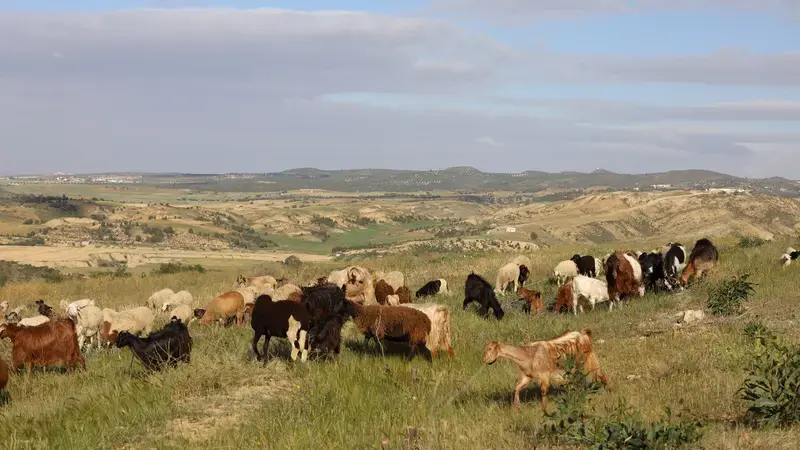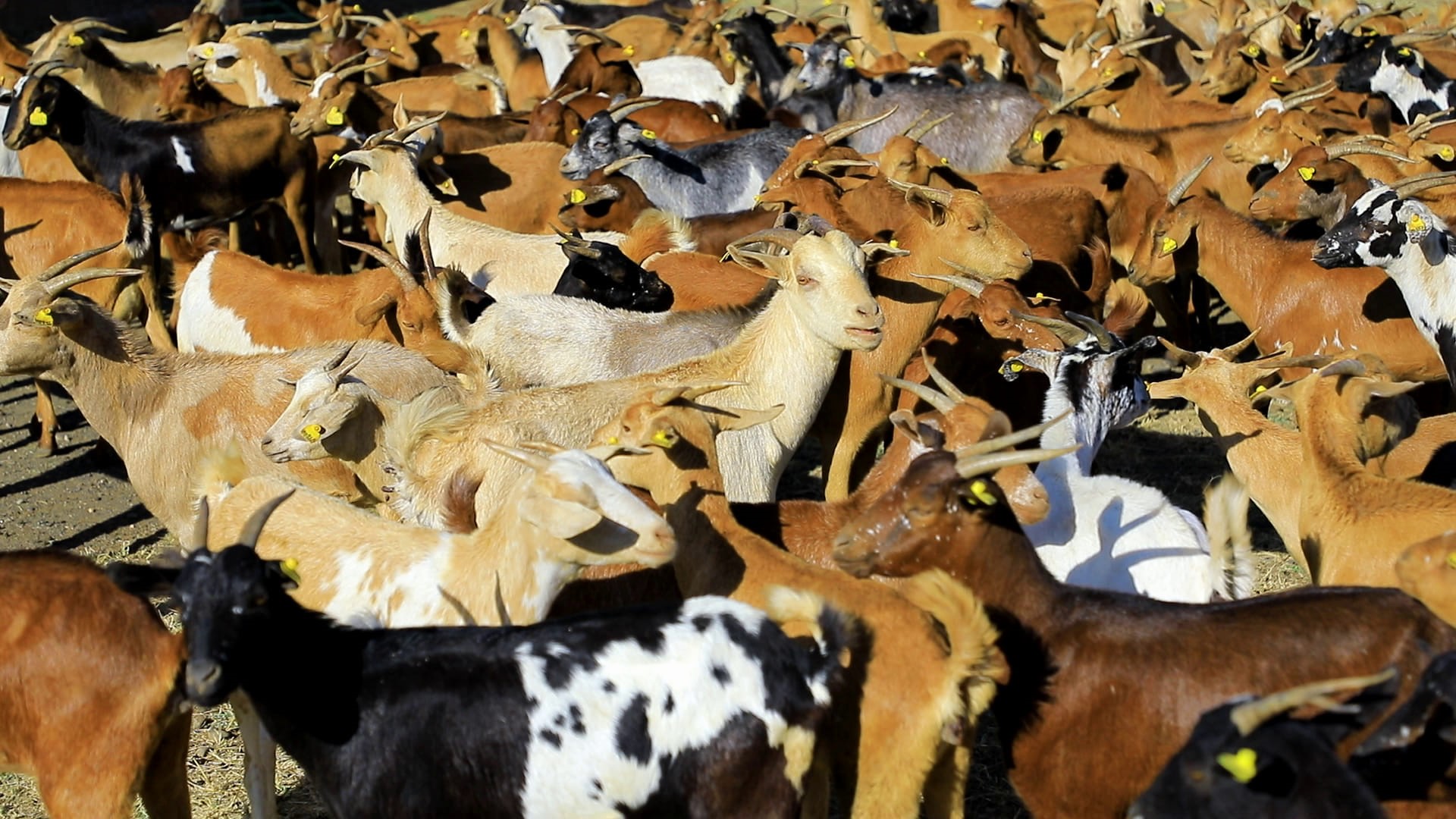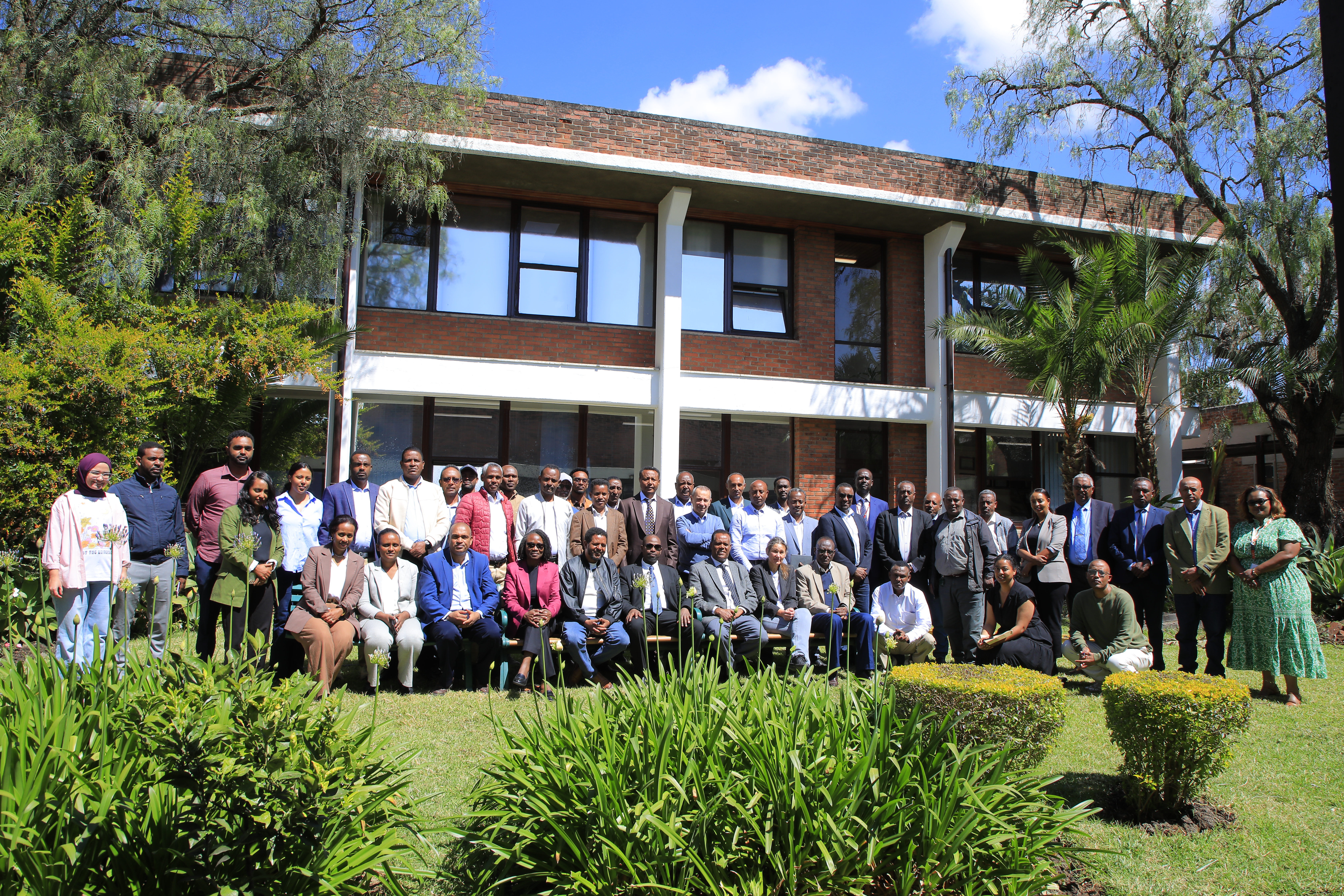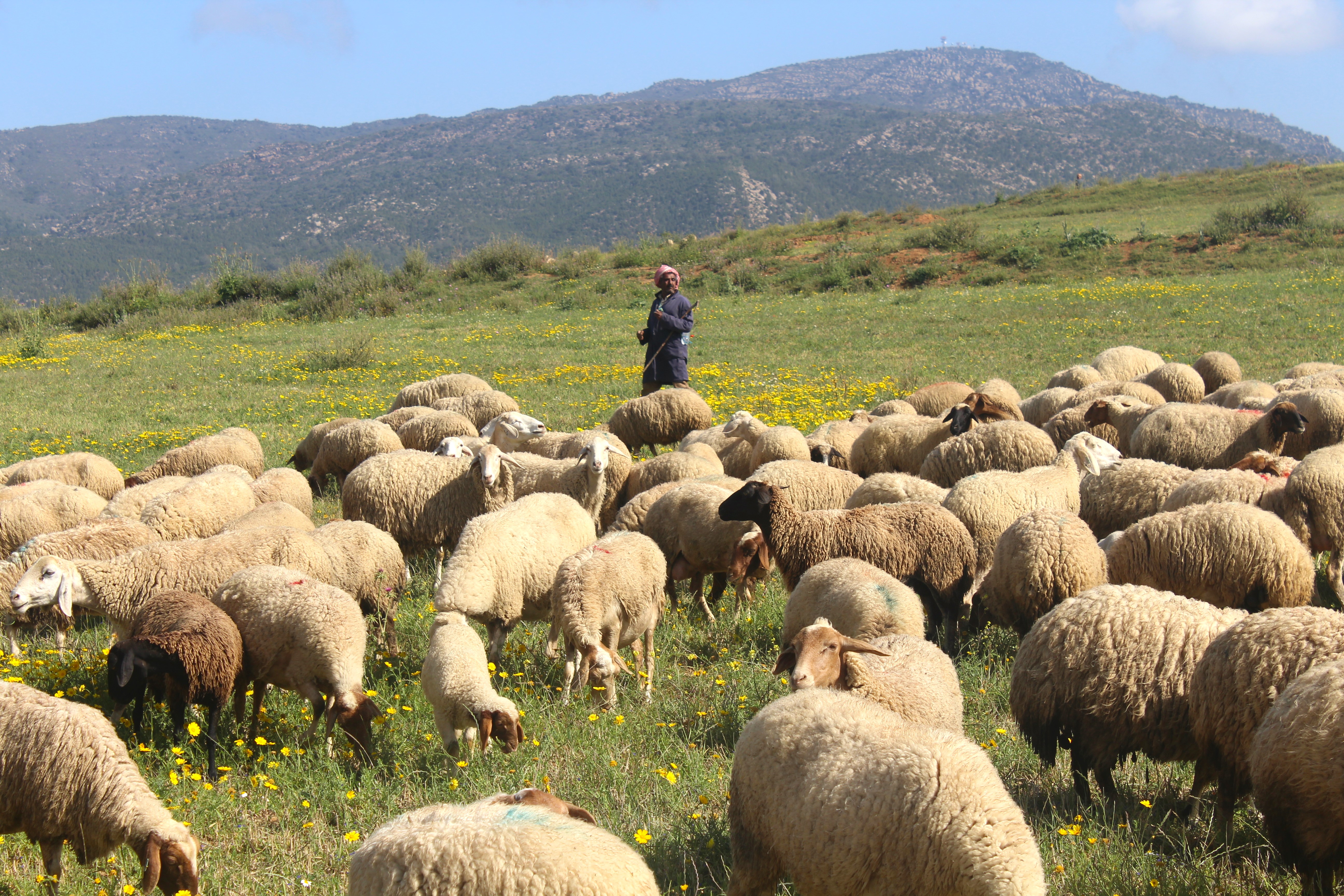United for Land - Regenerative Grazing to Combat Desertification

By Mounir Louhaichi, Research Team Leader for Rangeland Ecology and Forages, ICARDA
Through CGIAR's Research Initiative on Livestock and Climate, ICARDA's Sustainable Rangeland Management toolkit and regenerative grazing practices combine modern science and indigenous knowledge that combat desertification by restoring degraded lands to generate sustainable agriculture for dryland farmers.
Desertification is a growing global concern, leading to biodiversity loss, environmental degradation, and lower agricultural productivity. These factors, in turn, increase poverty rates, weaken socioeconomic conditions, and drive political instability. Land degradation further accelerates erosion, amplifies droughts and floods, and releases significant carbon into the atmosphere, collectively threatening food security and increasing migration. Over 2 billion people, predominantly in developing countries, rely on productive dryland ecosystems, but climate change and unsustainable agricultural practices jeopardize their livelihoods.
Rangelands cover more than half of Earth's surface and encompass diverse landscapes like grasslands, shrublands, wetlands, tundra, and deserts. These ecosystems are essential grazing and forage areas for both livestock and wildlife, supporting pastoralists, ranchers, and hunter-gatherers, as well as diverse plant and animal species. Rangelands, characterized by natural vegetation, are crucial for biodiversity conservation, hosting 35% of global biodiversity hotspots and providing habitat for 28% of all endangered plant species. They also offer the potential to sequester 35% of terrestrial carbon.
Despite their importance, intensified over-grazing practices have degraded approximately 18.5% of global rangelands, further exacerbated by climate change and human activities. Both undergrazing (an extended period with no grazing or exclusion of grazing) and overgrazing (continuous grazing where animals are kept in the same pasture all season with no recovery time for grazed areas) contribute to rangeland degradation. This degradation leads to the conversion of land to alternative uses, abandonment, habitat alteration, and biodiversity decline. Additionally, these practices exacerbate climate change by disrupting the natural balance of ecosystems.
To combat desertification, ICARDA, alongside the International Union for Conservation of Nature (IUCN), pioneered the Sustainable Rangeland Management (SRM) toolkit, which transforms rangeland restoration processes through sustainable practices such as regenerative grazing. This core innovation of the CGIAR Research Initiative on Livestock and Climate aims to strengthen community capacities in planning, managing, and governing their rangelands more effectively.
Regenerative grazing deploys a set of established practices that leverage the interplay between livestock grazing, herbivory-driven vegetation consumption, and thriving populations of soil microbes. By integrating indigenous knowledge and modern science, regenerative grazing enhances soil health, boosts biodiversity, sequesters carbon, and improves water retention. Its goal is to create a sustainable, resilient ecosystem that supports both the environment and the well-being of livestock and pastoral communities.
In central Tunisia, for instance, ICARDA and the Direction Générale des Forêts (DGF) work with silvopastoral communities on a state land of approximately 5,000 ha. The restored site is surrounded by 40 households reliant on livestock for income. Regenerative grazing management and SRM toolkit practices have reduced feeding costs by 65% and enhanced vegetation cover threefold, providing additional income from livestock, forest products, and beekeeping. In southern Tunisia, the adoption of regenerative grazing could potentially benefit 2.5 million hectares of communal and private rangelands, absorbing rainwater, maintaining soil health, and bridging feed resource gaps.
Reflecting on the saying, "It's not the cow, it's the how," we are challenged to rethink our approach to grazing. Rather than viewing it as harmful, we should harness grazing to improve rangeland health. By focusing on the soil surface—crucial for the water cycle, mineral cycle, and energy flow—we can transform grazing into a means to positive change.
This year's World Day to Combat Desertification and Drought, themed "United for Land," calls for collaborative international action to tackle desertification's root causes. The theme aligns with Sustainable Development Goal #15, Life on Land, emphasizing the importance of healthy soil for sustaining life. Together, we can work towards a future that is more equitable and sustainable while preserving the invaluable ecosystems and traditional ways of life that depend on these landscapes.
Initially launched under the CGIAR Research Program on Livestock and supported by a GEF-funded bilateral project (HERD), the SRM toolkit is now a key innovation of the CGIAR Research Initiative on Livestock and Climate.
References
Costa Jr. et al. 2022. Regenerative grazing for climate, ecosystem, and human health. 2022. The COP27 in Sharm El-Sheikh, Egypt. https://www.ilri.org/knowledge/publications/regenerative-grazing-climate-ecosystem-and-human-health
Evans, M. and Louhaichi, M. 2021. Better land-use decisions on the horizon with new Sustainable Rangeland Management toolkit. Innovation Brief. Tunis, Tunisia: ICARDA. https://hdl.handle.net/10568/118287
ILRI, IUCN, FAO, WWF, UNEP and ILC. 2021. Rangelands Atlas. Nairobi Kenya: ILRI https://www.rangelandsdata.org/atlas/
Louhaichi M., Gamoun M., Ben Salem F., and Ouled Belgacem A. (2021a). Rangeland biodiversity and climate variability: supporting the need for flexible grazing management. Sustainability 13:7124. doi:10.3390/su13137124.
Louhaichi M., Gamoun M., Gouhis F. 2022. Benefits of Short-Duration, High-Stocking Rate Opportunistic Grazing on Arid Rangelands During Favorable Conditions. Front. Ecol. Evol. 9:757764. doi: 10.3389/fevo.2021.757764.
Louhaichi M., Gouhis F., Gamoun M. 2019. A flexible approach to the restoration of degraded rangelands. Research Brief. https://hdl.handle.net/20.500.11766/10498
Louhaichi, M. et al. 2022. Sustainable Rangeland Management Toolkit for Resilient Pastoral Systems. IUCN and ICARDA. 168 pages. https://hdl.handle.net/10568/125414



